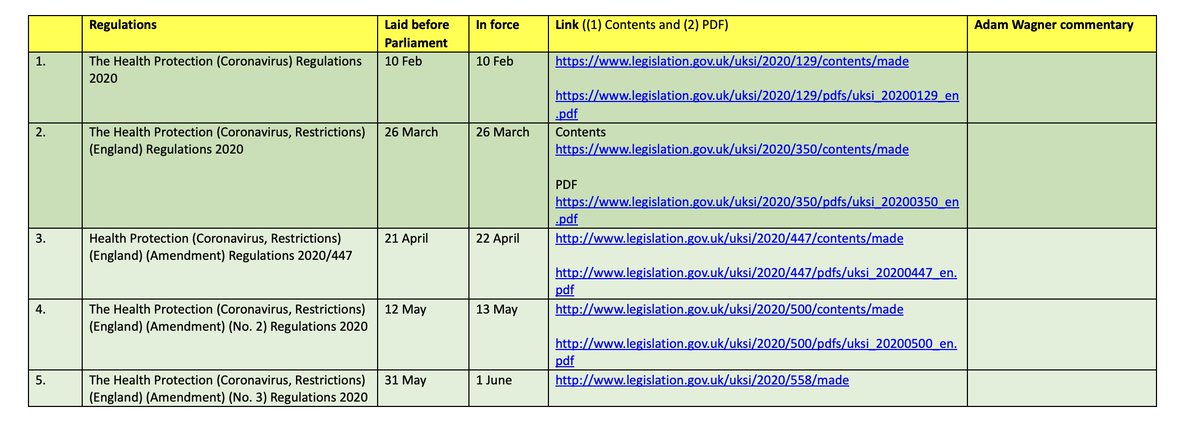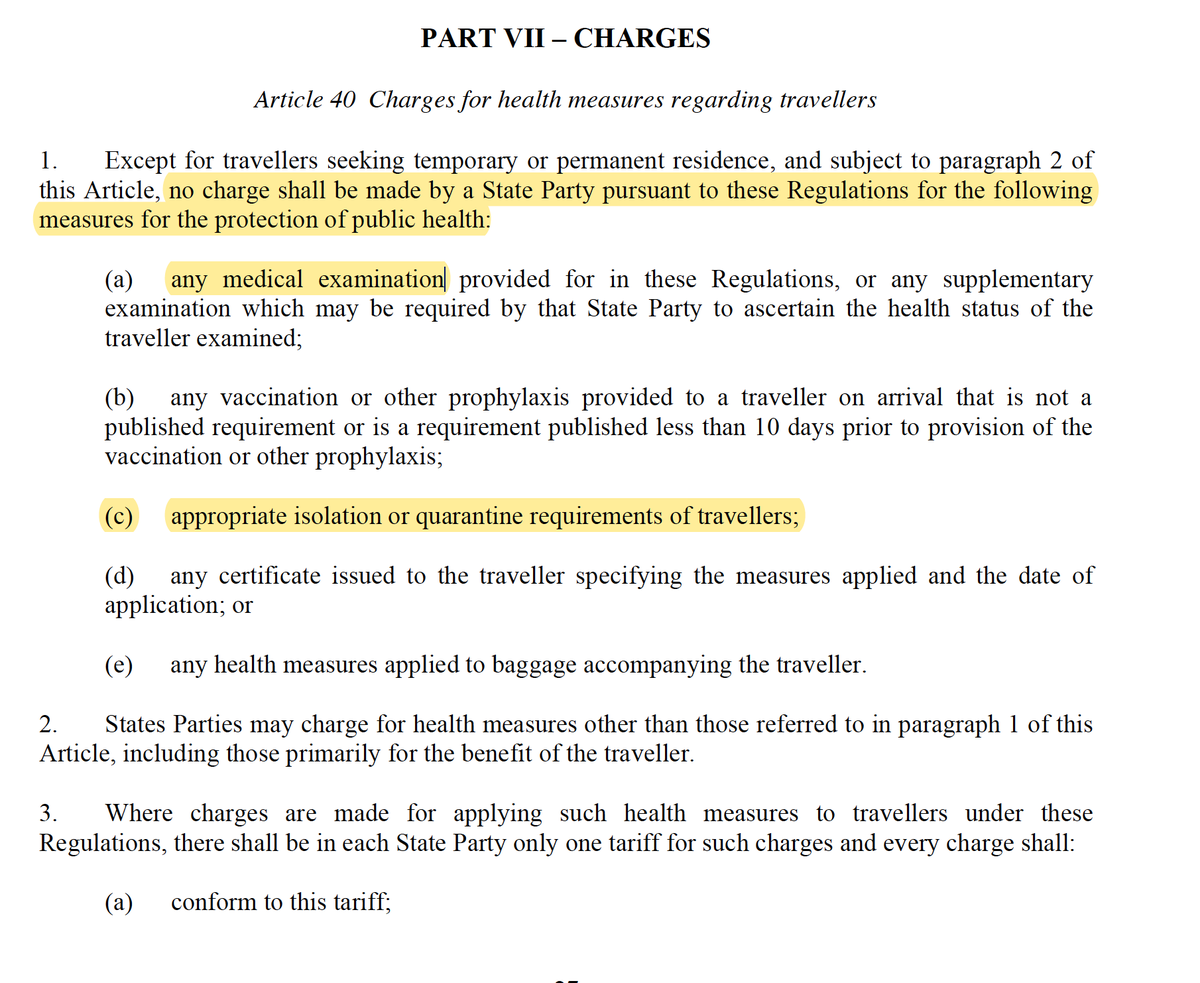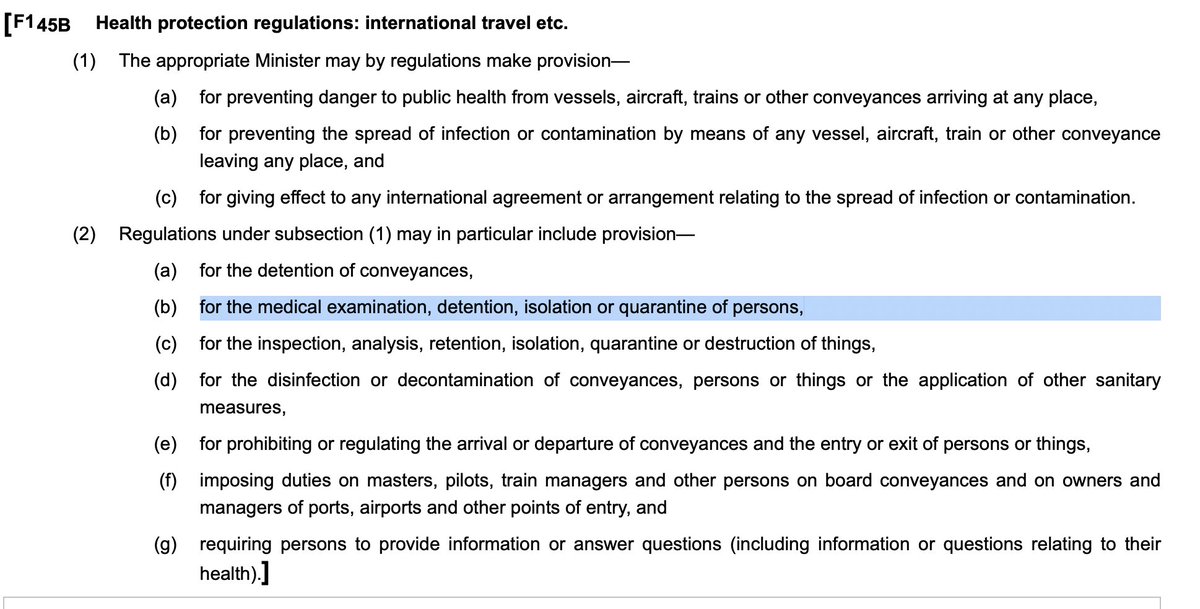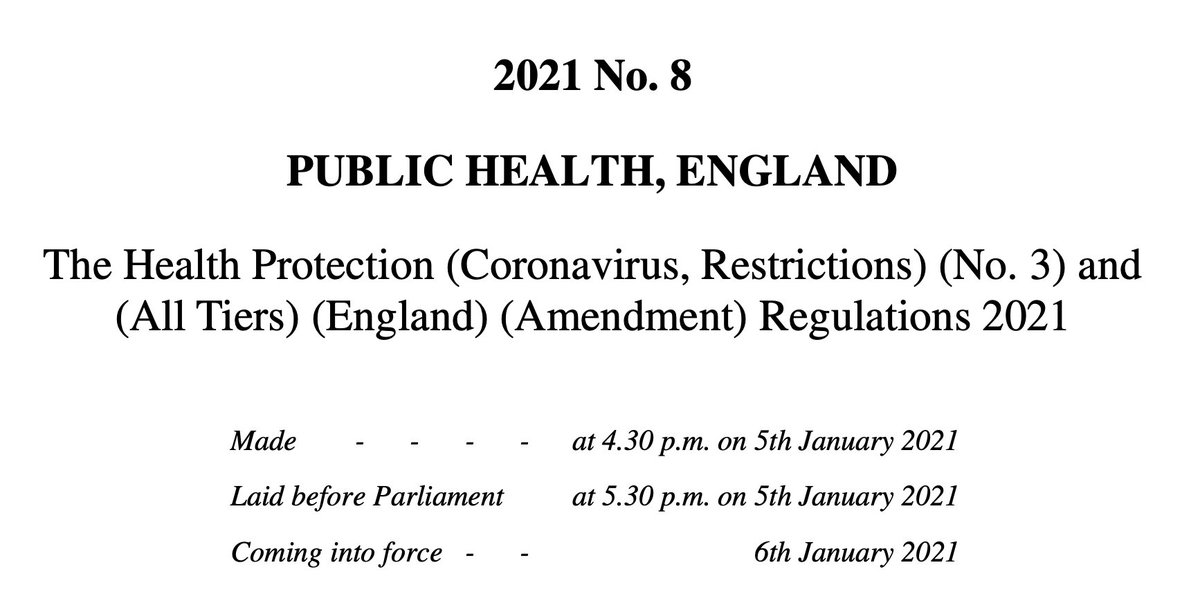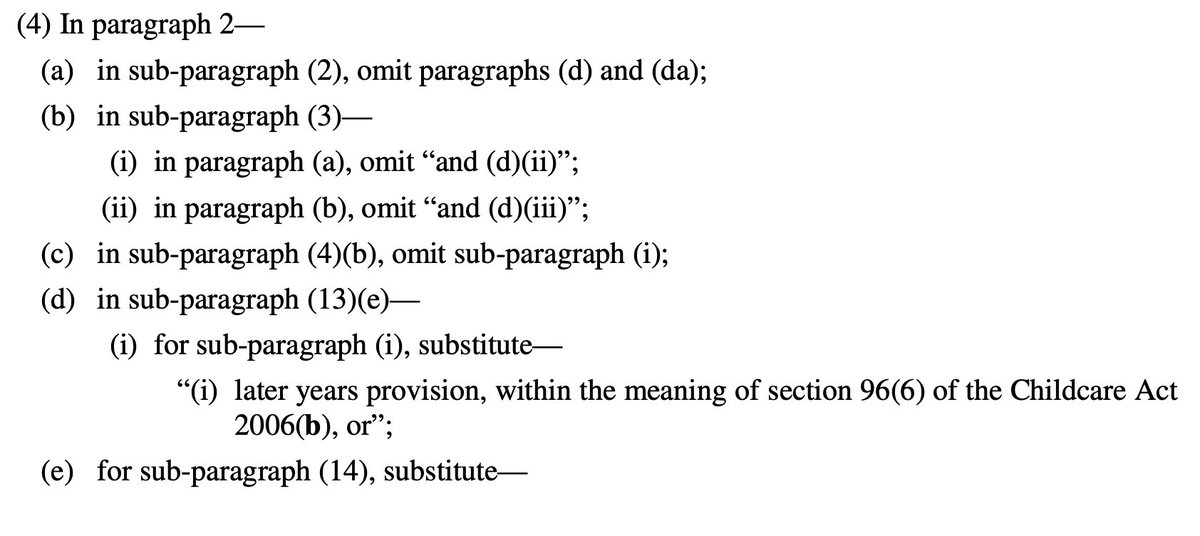As trailed by Home Secretary last week there is now a fixed penalty notice of £800 (or £400 if you pay within 14 days) for participating in an gathering of over 15 people in a private residence
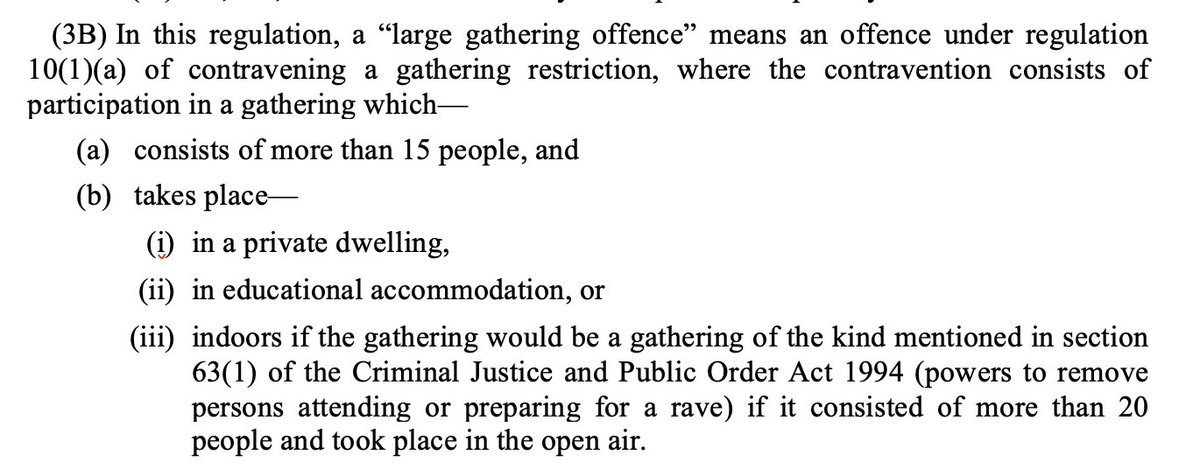
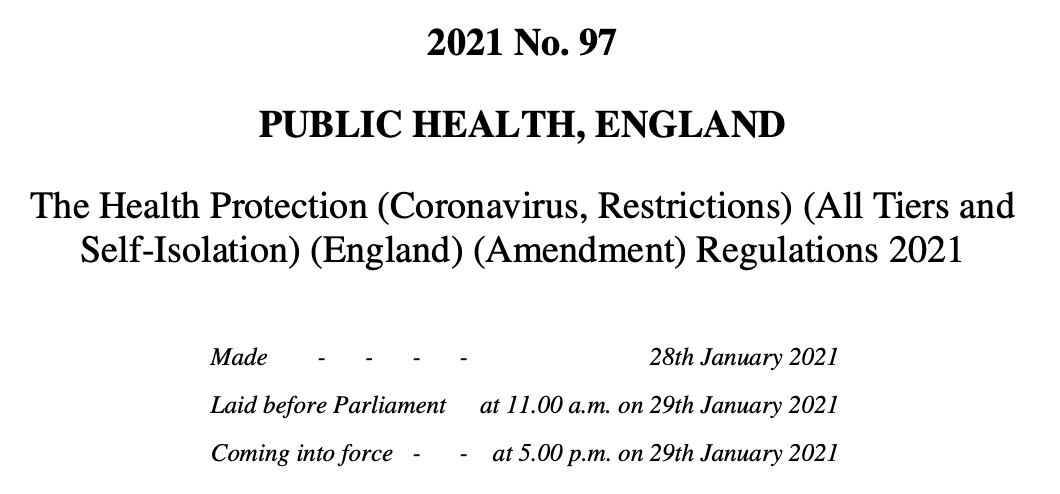

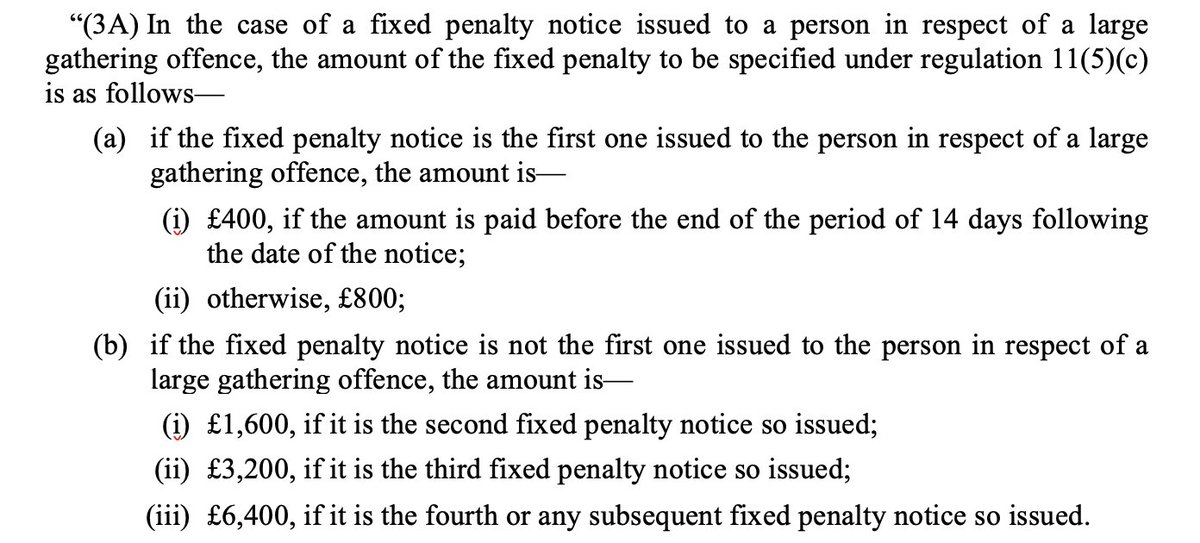
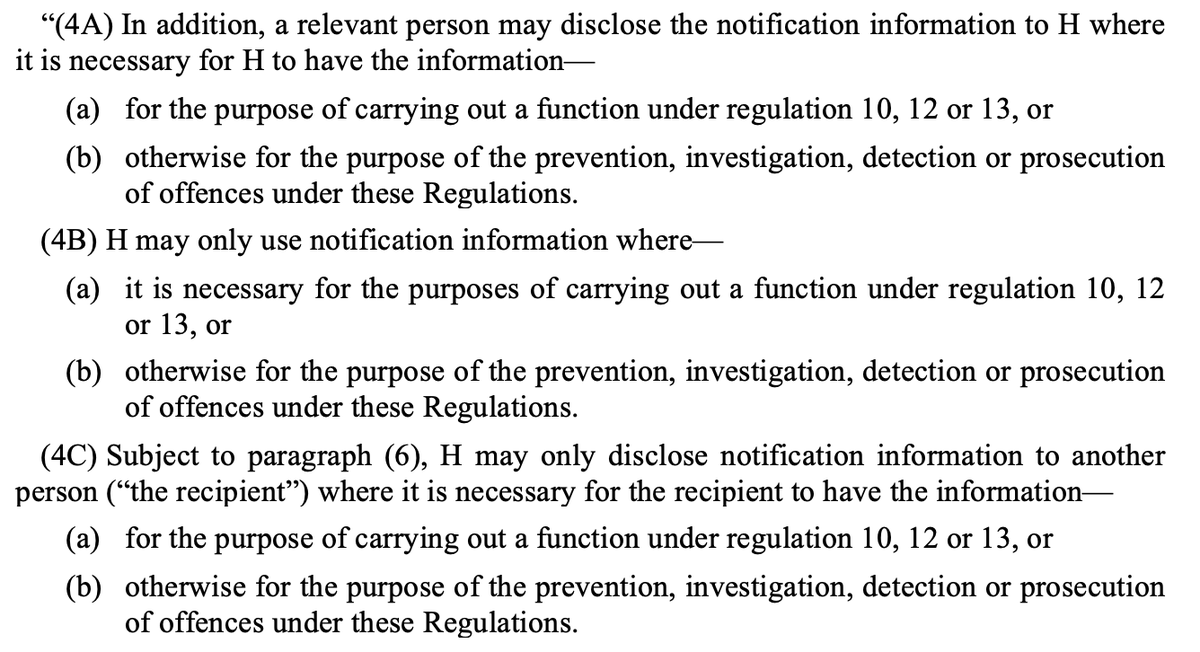
Very important that obvious failures with Track and Trace and self-isolation (study late last year said 18% of people complying https://t.co/dhJUZ7Pm0l) are not painted as an enforcement issue. Plainly not. Would just pass buck to police who have almost no capacity to enforce https://t.co/Eb4Kl5Ze0E
— Adam Wagner (@AdamWagner1) January 25, 2021
\U0001f6a8Just caught these. Will be super quick
— Adam Wagner (@AdamWagner1) September 27, 2020
New legal duty to self isolate if positive test OR told by contact tracing system (not by app) to self isolate
The Health Protection (Coronavirus, Restrictions) (Self- Isolation) (England) Regulations 2020https://t.co/KNcNYNgcgH

How should the COVID-19 regulations be policed?
— Adam Wagner (@AdamWagner1) January 10, 2021
(Thread)
